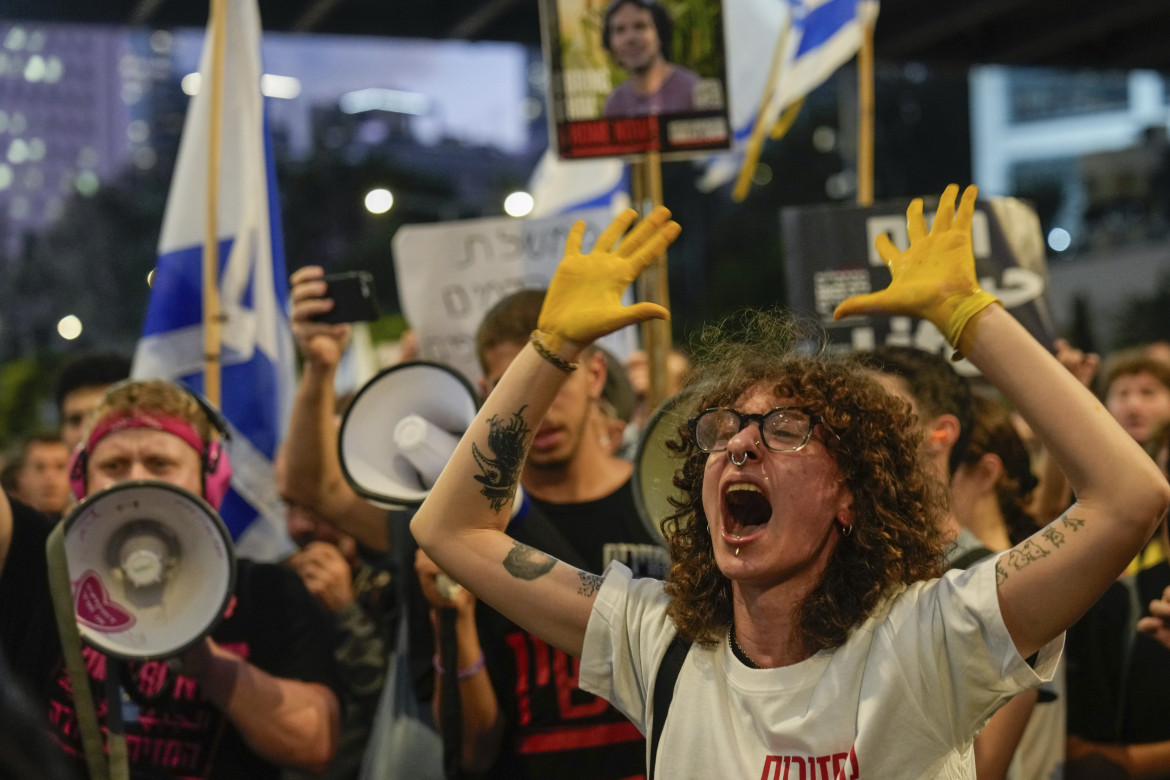Analysis
How will Israel be healed?
While the Palestinians are busy with literal survival, Israelis are experiencing a real emergency on the mental health front.

On Saturday, on her 22nd birthday, Shirel Golan, one of the young survivors of the Hamas massacre at Nova Festival, took her own life. Shirel is unfortunately not the first of the survivors to take her own life, but the suicides, much like the maimed soldiers, are mostly kept under wraps in Israel.
Meanwhile, in the foreign media, her death, like those of the civilians, hostages and Israeli soldiers who have lost their lives in the past year, is overshadowed – not without some embarrassment – by the endless multitude of unnamed victims in Gaza, and now Lebanon as well.
But there are many reasons to not ignore Shirel’s death. In addition to the sacredness of each individual human life that goes beyond ethnicity and political views, it also forces the world to confront the question that it keeps not wanting to look at: how will Israel be healed?
While the Palestinians are busy with literal survival, the Israelis enjoy a “comfort margin” that brings down the adrenaline just enough to allow them to feel all the anguish, despair and resignation. More than 12 months of more or less direct exposure to violence, mourning, war wounds, hostages, displaced people, protests, economic and political uncertainty and constant danger, manipulated by the institutions that are pouring gasoline on the fire instead of steering the country out of the crisis it finds itself in – all these have brought down the nervous system of even the most resilient people.
The Jewish state is experiencing a real emergency on the mental health front; mental health professionals and researchers have been investing a lot of effort into finding ways to manage it, and substantial funds have finally been allocated to the precarious public health system to strengthen and train staff, make services accessible and reduce waiting times.
However, Shirel's family, in their despair, are denouncing the state for failing to intervene to offer Shirel the help she needed, and generally failing to take care of the Oct. 7 survivors, leaving them to fend for themselves. After all, one only has to browse Israeli social media to see that depression and anxiety are rampant, as well as the use of psychiatric drugs, recreational drugs and alcohol, along with a great helping of denial of reality, which seems to have gone far beyond any healthy dissociative mechanism.
One would have expected better from a country like Israel, where traditionally many citizens go to therapy and many are therapists themselves. But if treatment isn’t working, one must investigate the reasons why. Experts are pointing to the uniqueness of the traumatic events of Oct. 7, and the consequent absence of scientific literature on the subject, which forces them to adapt, invent and experiment with new forms of therapy, which takes a longer time.
However – without detracting in any way from the suffering of those who experienced the horrors firsthand – one cannot help but wonder if it’s not precisely this perception of “uniqueness” that is the elephant in the room misleading practitioners and affecting their ability to “heal,” all due to a problematic way of interpreting events. One can read a confirmation of this fact in the communiqués issued by Israeli psychoanalytic societies, which are busy defending themselves and criticizing the anti-Semitism of colleagues across the sea, but hardly ever give a firm condemnation of the military operations and the occupation against the Palestinians, issues markedly absent in the analytic field.
One of the few to openly denounce the vicious cycle in which his compatriots are trapped is Israeli psychoanalyst, psychiatrist and historian Eran Rolnik. In his writings, Rolnik describes Jewish society as trapped in the perverse mechanism that characterizes an authoritarian regime: the worse the political situation, the war and the international isolation, the greater the fear of the truth and the lesser the will to engage in change and make amends. When trapped in this pattern, instead of becoming stronger in the role of a conscious subject capable of influencing the reality in which they live, the patient risks becoming nothing more than the helpless victim of a catastrophe that has befallen him, entirely disconnected from the pre-existing historical-political context.
If the hold on truth, or at least the sincere desire to seek it, has been thwarted, and if psychoanalysts themselves are unconsciously reliving the unresolved trauma of the Shoah that makes them too emotionally involved, help must come from outside. First and foremost, psychoanalytic societies have the tools to question how to intervene, and at the same time the duty to respond to the ethical imperative put before us by Shirel's desperate gesture, in the knowledge that the soul-level healing of the Israelis is precisely what can ensure a better future for the Palestinians as well.
Originally published at https://ilmanifesto.it/un-male-senza-cura-la-crisi-della-salute-mentale-in-israele on 2024-10-24
